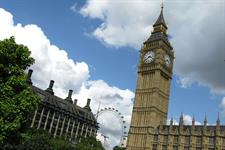The charity sector has broadly welcomed the ideas put forward in the Kruger review into how the government might make the most of the voluntary sector in the UK’s recovery from the coronavirus pandemic.
Danny Kruger, the Conservative MP for Devizes, has delivered his report to the Prime Minister, which made a raft of recommendations including that the government should seek to unlock £500m from charity the National Fund to use to support the sector and the establishment of a £2bn endowment fund to support disadvantaged communities.
Voluntary sector organisations broadly welcomed the report, but there was some anxiety, especially in regard to the proposed £500m near-term financial support for the sector, over whether and when the government might adopt the report’s recommendations.
Caron Bradshaw, chief executive of the Charity Finance Group, said: “Mr Kruger has rightly pointed out that the Treasury’s £750m grant to the charity sector was a lifeline earlier this year, and we welcome his recommendation that government now needs to go further still.”
Karl Wilding, chief executive of the National Council for Voluntary Organisations, said: “The recognition that charities need more financial support is very important and I hope this will be taken seriously by the chancellor as he sets out his winter economy plan and starts to think about the longer-term financial support for the country.”
The charity leaders’ body Acevo said it was pleased that Kruger adopted its suggestion that the government use money from the National Fund (a charity established in 1928 with £500,000 and the aim of paying off the national debt) and from dormant insurance accounts to support the voluntary sector.
Kruger recommended that £500m come from the former in near-term funding as a Community Recovery Fund, and £2bn be taken from the latter to provide a long-term endowment to support communities, dubbed the Levelling Up Communities Fund.
Others focused on the urgency of the voluntary sector’s need for financial support.
Matt Whittaker, chief executive of the think tank Pro Bono Economics, said: “When government turns to considering which recommendations to implement, urgent attention must be paid to how to funnel more resources into the sector.
“Our research shows the recession driving greater demand for charity services, with the sector facing a £10bn funding gap this year.”
Duncan Shrubsole, director of policy, communications and research at the Lloyds Bank Foundation for England and Wales, said: “Charities need support and new sources of funding now, such as through the proposed Community Recovery Fund, and longer term through the proposed Levelling Up Communities Fund, using dormant assets to put funding in the hands of communities and the charities working with them.
“The need is clear; we urge the government to not delay and to work with charities to implement these recommendations.”
One critical voice came from the international development sector network Bond.
Simon Starling, director of policy, advocacy and research at the charity, said it was “a shame the report did not mention the 6,800-plus charities in the UK, supported by local communities, that work internationally to deliver help to people around the world”.
Also in this vein, Acevo noted that the report might be less relevant to some of the organisations it advocates for, such as international charities and large medical research charities.
But the vast majority of reactions were positive, with a number of organisations welcoming Kruger’s receptiveness to their ideas.
Tom Collinge, policy manager at NPC, said: “We welcome Danny Kruger’s wide-ranging report, which includes many proposals NPC has long advocated for, such as Data Labs, publishing data, and a commitment to social infrastructure.
“It would have been good to see more help for charities to evaluate their impact, but overall Danny’s recommendations are clear on the need for better use of data, evidence of impact and understanding of place among charities, funders and government.”
Wilding added: “Many of the ideas in the report chime with things that we and others have long pushed for, pushing forward on local endowments, releasing the money contained in the National Fund and using the Gift Aid system to leverage more funds.”
But as well as welcoming the report, the sector fretted over having to wait and see whether the Prime Minister’s endorsement would translate into action.
Acevo warned: “Danny Kruger has a strong relationship with the Prime Minister, but the ambition in this document can only be realised with ministerial and broader cross-party backbench support. Without that there is a risk that this document, like the Civil Society Strategy, will get lost without its potential being realised.”
Bradshaw said: “We hope that Mr Kruger’s report will mark the beginnings of a vital dialogue between government, charities, social enterprises and wider civil society. Talk is one thing; we now need the government to start putting in place the infrastructure required, and back that with those desperately needed funds.”
